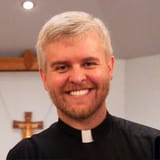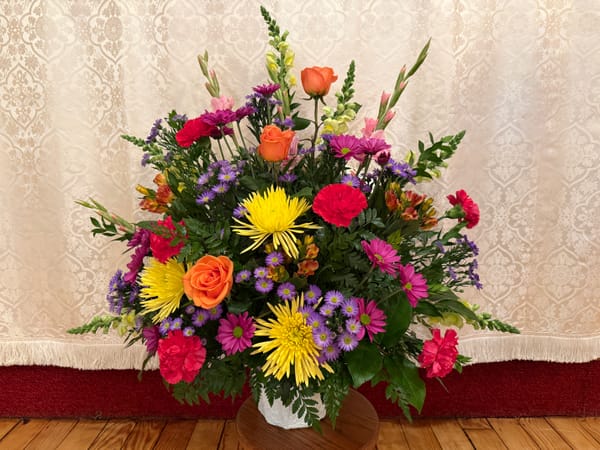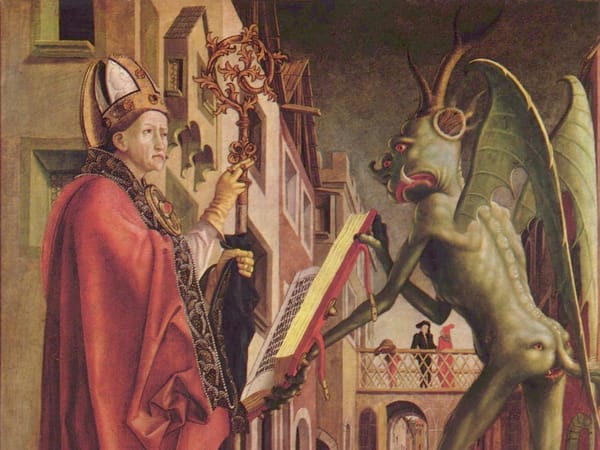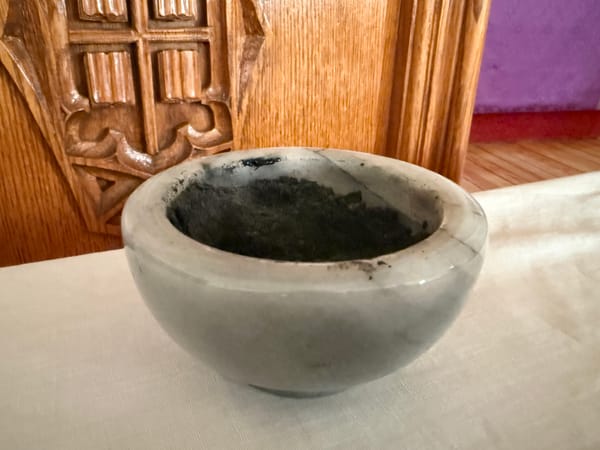Fluency in both Grief and Hope
Hardship, as Jesus says, is inevitable, and it will come. But that hardship is also our opportunity as Christians to testify to goodness and to love.
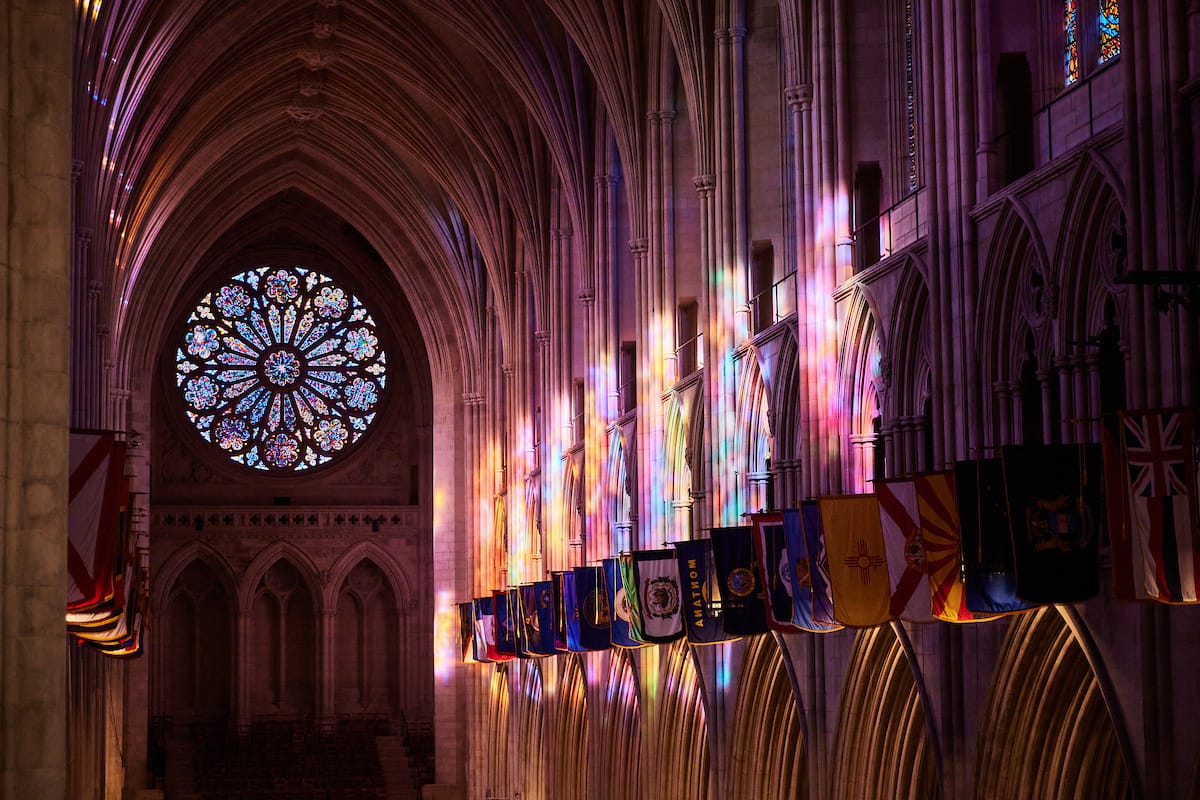
Pentecost 23, Year C, Proper 28
My friends, I speak to you today in the name of one God, Father, Son, and Holy Spirit. Amen. Please be seated.
Good morning, Epiphany. As you may know, we are nearing the end of this long season after Pentecost – this is week 23 in a row of wearing green on Sundays – though we have been lucky to have a few Sundays in white mixed in there, thanks to a few baptisms this year. The season of Advent is right around the corner; you may have seen your neighbors putting up their Christmas lights, you may have heard carols on the radio. Christmas is indeed on its way. This year, the first Sunday after Thanksgiving, November 30th, that is the First Sunday of Advent, the beginning of our new year in the church. It is shocking to me that we’re already halfway through November 2025, we’re already coming up on Black Friday Week, as Amazon now calls it. Shopping season is fully underway. (I want an eBike this year, if anyone’s looking to buy a gift for their priest.... Just kidding.)
What has been undeniable for me this year, though, is the recognition that we have four clearly defined seasons in South Haven. We didn’t really have this in Charlotte, North Carolina, where we last lived; there, summer felt like it lasted about 8 months, spring and fall felt like mere blips, and winter, well, it was 40-60 degrees and drearier than usual, but snow and truly cold days were rare. Here, we definitely have seasons; though snow might sneak into late fall as it did this week, our fall is beautiful and full of color; winter is cold, gray, and snowy; spring is full of excitement and new life, though it may not come as soon as we like; and summer, well, we cannot find parking spots downtown in summer.
Seasons are a normal part of life on earth; we are privileged, if we’re lucky, to see decades and decades of seasons before our own lives come to an end, though the seasons will continue long after we ourselves pass.
The season after Pentecost, the longest season here in the church, well it officially ends next week with Christ the King Sunday. Christ the King Sunday is a chance for us to remember that there are no kings but Jesus, that we worship no one less than the incarnate God of the universe. I won’t steal next Sunday’s thunder this morning, but instead I’ll point out that the gospel reading today is the last time this liturgical year when we read a story from the gospel of Luke that does not involve Jesus’s crucifixion. Our lectionary year ends next week, and so before Jesus is killed and receives his crown of thorns, his cross that calls him “King of the Jews,” we have today’s passage.
Today, we find Jesus having arrived in Jerusalem at the end of his journey, we find Jesus in the temple. He has driven out those selling in the temple, calling it a den of robbers; he has told parables there about who our money really belongs to; he has answered questions from the Sadducees about the resurrection and marriage, as Jim Sullivan preached last week, and Jesus also warned about those who always seek places of honor, instead praising the widow who gave all she could. And now, now his disciples are looking at the beauty of this glorious temple, the beautiful stones and all the gifts dedicated to God.
I found out this week that when the National Cathedral in Washington was dedicated, after millions of dollars were spent on its construction, the preacher for the day preached from this passage: not one stone will be left on another, every one of them will be thrown down. What Brother Martin Smith preached that day was shocking to those assembled, of course, just as shocking as it was to those who heard Jesus. In Washington, they had just invested 83 years of work, from 1907 to 1990, and over $65 million to build their temple to God. We may think of temples differently these days than they did in Jerusalem, but cathedrals are temples, perhaps with a lowercase T. And this place, here, this is a temple, according to Merriam Webster at least: a building for religious practice.
When Jesus is speaking to his disciples and the gathered Jews there in the temple in Jerusalem, Christian commentators and Jewish historians agree that he was speaking as a prophet, likely prophesying about events that were to come in the first century. Wars and insurrections were indeed to come: the temple was destroyed by the Roman army in response to a Jewish revolution in the year 70, about 35 years after Jesus’s death. All that was left from that event was the temple’s western wall, which we know still stands today. There were earthquakes and famines and plagues too... and then, of course, the fledgling church was persecuted, Christians were hated, for centuries, because of the name of Jesus. Following Jesus then was a life-risking decision, not made lightly, one that divided families and turned believers into fugitives. With faith came true hardship.
Today, that is not quite the case, at least not for us in this room: the Christian faith does not bring hardship for most people in the United States... Though some of us here hesitate to call ourselves Christians because of the baggage that term has accumulated, none of us will be put to death for attending church this morning, none of us here will be arrested for showing up at our place of worship, our temple. But we would be mistaken if we thought that our security meant that Jesus’s words in the first century were not timeless. They are. Just as Brother Martin Smith told the people at the National Cathedral that not one stone will be left upon another, so too do we know that is true here today; this building at the corner of Kalamazoo and Erie will not stand for centuries, no matter how well we take care of it. Everything in this life is passing; it is temporary. Everything here has a season.
The rest of Jesus’s words here are just as timeless; they may even feel more appropriate for us today than they did three years ago or six years ago, the last times they came up in the lectionary. “When you hear of wars and insurrections, do not be terrified... nation will rise against nation and kingdom against kingdom... there will be earthquakes, famines, plagues...” Life will be difficult. Our world is not one built for eternal security and safety.
The Rev. Elizabeth Garnsey, an Episcopal priest in Connecticut, made this point on a podcast this week: “Faithful disciples of Jesus have to keep a clear head and not be shaken by the falling down of our temples and our institutions, the things we may worship, our systems, our commerce, everything... we have temples of our own that will be thrown down and are currently being thrown down.” I think she is right. All things, even things we love, they are passing. That does not mean we simply let them all pass, but we would be foolish to think anything lasts forever outside of the love of God.
So, what are we to do in this passing, painful, tumultuous life... when beautiful stones are torn down, when wars and famines and plagues abound? Our other two passages give us some insight, before we get to what Jesus says. In Malachi, we hear the day is coming when the arrogant and evildoers will be stubble, when all things are passing away, but the righteous shall rise. In 2 Thessalonians, we read Paul urging Christians who were simply waiting for Jesus to come back to keep on working, to not be weary in doing what is right. In both passages, we hear that in times that are temporary, we are to do what we know we should do, what is righteousness, what God asks from us, what Christ commands throughout the Gospel. We know this here at Epiphany, we talk about it each week: we know we are simply called to love, to love both God and neighbor.
Friends, the most important part of the gospel reading for me this morning comes in that last paragraph. All of these things will happen, all that we love will be fading and even taken away, but Jesus simply says, “This will give you an opportunity to testify,” and, “By your endurance you will gain your souls.” Difficult times are a guarantee in this life, broken societies, broken bodies, broken relationships... all will fade away to dust.
But as William Brueggeman and the Rev. William Barber both say, “We must be fluent in both grief and hope.” This morning, we may look outside and have reason for grief: the leaves may have all fallen, the gray skies and colder temperatures are rolling in, life is passing away. We may also see masked soldiers on our streets and outside schools and churches; we may see criminals living above what we thought were laws. We may see institutions falling apart before our eyes, stones falling one from another.
But we also have reason for hope. Grief, yes, but also hope. We know there is joy to be found in the winter, in the cold, in the gray; Lily wanted to go sledding on our two inches of snow the other night, she said she’d waited for it for eight months, and it was all joy. And we know that new life is coming, that spring and summer are just around the corner. We know that there is good in the world, that there are those fighting for justice for the oppressed, that there are many feeding the hungry and working to make things right. And we know there is love in this world, like you find here among the people around you at Epiphany this morning, love that you experience at brunch and by being a part of this place. And ultimately, we know love through God and Christ... for God so loved the world, that he gave his only Son, so that everyone who believes in him may not perish, but may have eternal life.
Hardship, true hardship, as Jesus says, it is inevitable, it will come. But that hardship is also our opportunity as Christians to testify to goodness and to love. May we endure the seasons we face well, friends, and may we all stay fluent in both grief and in hope, for the good of the world.
Amen.
